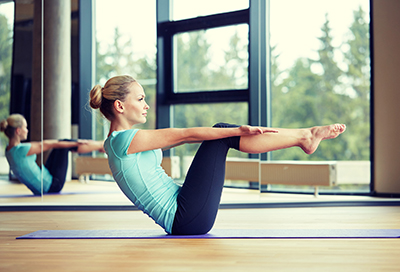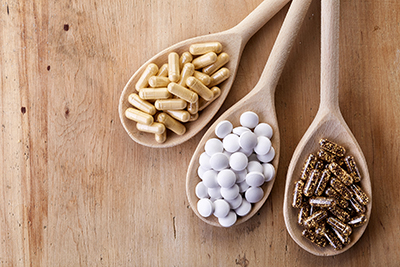Sleep Hygiene: Naturopathic Perspectives
What is Sleep Hygiene?
Something everyone has in common is the need for sleep. We spend about one third of our lives sleeping. Since we all need sleep, we all have different strategies and techniques in order to ensure a restful night’s sleep. Sleep hygiene is the set of habits one does in order to try to sleep well on a consistent basis.[1][2][3][4][5] Millions of individuals suffer from sleep disturbances, including insomnia, which affects 20% of the population.[1][2] Insomnia is difficulty with falling or staying asleep. The causes of insomnia are often difficult and frustrating to determine.
People use a variety of tools to try to get more sleep, including medication therapy. Many individuals desperately want to sleep and will almost resort to whatever means necessary to get sleep. Medications typically have unwanted and unexpected side effects, from dizziness and daytime drowsiness to weakness and stomach pain, and tend to only be effective for the short term. These side effects lead individuals to seek alternative therapies and remedies as sleep aids. Let’s further discuss some alternative tips and strategies for improved sleep.
Alternative Strategies for Improved Sleep
Our bodies need sleep in order to grow, rejuvenate, make hormones, repair damaged tissues, grow muscle, and restore memories. With sleep being so crucial, yet so hard to obtain for so many individuals, a vacuum for seeking alternative strategies for improving sleep has been created. Each individual will find a different quantity and combination of strategies that works best. What works for one person may not work for another person.
A multitude of alternative strategies have been utilized to help with improving sleep. These strategies range from old wives’ tales to scientifically proven treatments.
Typical alternative sleep-aid strategies include relaxation techniques, exercise, nutrition and supplementation, environment adjustment, and habits and rituals.[1][2][3][4][5]
Relaxation Techniques
Doesn’t just reading the word “relaxation” make you feel more relaxed? The power of the mind is amazing, especially in the world of sleep hygiene. Relaxation techniques aim to relax the mind and body while reducing tension and stopping sleep-disturbing thought processes.[1] Four common relaxation techniques include biofeedback, imagery, deep-muscle relaxation, and autogenic training (AT).
Biofeedback involves using a biofeedback machine at the doctor’s office or at home. Electrodes are attached to the individual to measure heart rate, muscle tension, and brain activity. The purpose of monitoring is to see how different thoughts or movements affect how your body tenses and relaxes. You are training your body to recognize and react accordingly to different sensations with a biofeedback loop.[1]
Imagery is a mental practice of visualizing peaceful and calming images and scenes in order to help relax the body for a restful night’s sleep.[1][4] With imagery, you can learn to control your breathing and empower yourself to imagine having a good night’s rest. Imagery is also used as a strategy for coping with pain.
Deep-muscle relaxation, or progressive muscle relaxation, is a progressive series of tensing and relaxing different muscle groups in the body.[1] The process of contracting a variety of muscle groups causes the muscles to fatigue as well, which helps to induce sleep.
Autogenic training (AT) involves specialized training in a series of courses. Individuals who use AT are able to exhibit greater control of relaxing certain muscle groups, including breathing and pulse control, with higher levels of training.[1]
 Exercise
Exercise
Using exercise as an ally in the fight for more sleep should not come as a huge surprise. Exercise has been shown to help people fall asleep and sleep more soundly.[4] The timing during the day when you exercise is very important for proper sleep hygiene. Exercise should happen during the day and be avoided at nighttime, especially four hours up until bedtime.[1][2][3][4]
Endorphins are released during exercise, which are great for boosting your mood but cause excitement and can keep individuals awake.[2] Your core-body temperature and secretion of cortisol also increase during exercise, which can signal your body to stay awake.[2][4] Exercise is a great tool in the sleep-aid toolbox, as long as it is done earlier in the day.
Nutrition and Supplementation
Did you know a proper diet is helpful for getting a restful night’s sleep? Just as timing of exercise is important for optimal sleep, the timing of eating and drinking is just as important. You should try to finish dinner several hours before bedtime and stay hydrated enough to not wake up thirsty or wake up needing to use the restroom.[3][4] A light snack, cup of chamomile tea, or a warm glass of milk, which contains sleep-inducing tryptophan, may also help with relaxation prior to bed.[3]
Avoiding certain stimulants—such as spicy foods, nicotine, caffeine, and alcohol—about four to six hours prior to bedtime helps improve sleep quality.[1]2][3][4] Certain medications and pain relievers may also need to be avoided prior to bedtime, along with the urge to eat a heavy meal.
 A variety of herbal supplements have been utilized as alternative sleep aids. The most commonly known one is melatonin, which is typically released in the brain about four hours prior to feeling sleepy or when light is naturally reduced.[2][5] This signaling can become confused with the light from screens and homes. Melatonin supplements are available over the counter. Tart cherry juice has been shown to help with melatonin production and supporting healthy sleep cycles.[2]
A variety of herbal supplements have been utilized as alternative sleep aids. The most commonly known one is melatonin, which is typically released in the brain about four hours prior to feeling sleepy or when light is naturally reduced.[2][5] This signaling can become confused with the light from screens and homes. Melatonin supplements are available over the counter. Tart cherry juice has been shown to help with melatonin production and supporting healthy sleep cycles.[2]
Magnesium is a very vital mineral for brain and heart health in addition to providing relaxing effects on smooth muscle. It also helps with melatonin production and increases levels of the calming substance gamma-aminobutyric acid (GABA). Insufficient levels have been linked with poor sleep quality.[5] The modern food supply is deficient in magnesium due to soil depletion. Magnesium supplementation is essential and also should be timed right, preferably about one hour before bedtime for optimal effects.
Many herbs and flowers have been noted to help with sleep, such as valerian root, lavender, chamomile, and passionflower.[5] Other vitamins, minerals, and amino acids that have been found to contribute to healthy sleep patterns include glycine, tryptophan, Ginkgo biloba, and ʟ-theanine.[5] Consult your health-care practitioner before starting a new supplement regimen in order to prevent any potential interactions with other medications and/or supplements you may currently be taking.
Environment Adjustment
Everyone has a different preference as far as sleep temperature; however, extremes in hot or cold are not conducive to good sleep. Also, make sure your bedroom is dark and quiet, as light and noise interfere with sleep.[1][2][3][4] Make your environment comfortable for your needs. Keep as many pillows and blankets as you’d like, or wear a sleep mask or earplugs if necessary. Please make sure to keep people and pets around who are conducive to a restful environment. One final tip for good sleep hygiene is to put away the television, computer, and smartphone screens.[3][4] Your bed should be saved for two activities: sleep and sex.
Habits and Rituals
Everyone has a different series of habits and rituals necessary for sleep. A nice warm bath prior to bedtime can be relaxing.[3] If you are having difficulty falling asleep, try to sleep only when you are actually sleepy. Also, try not to be a clock-watcher. A sleep journal can help you to write down any feelings or issues so you can process them and alleviate your mind.[3][4]
Naps are great for catching up on missed sleep. The timing of naps should be short, such as 20 minutes or less, and occur before the afternoon.[1][3][4] You may throw off your sleep-wake cycle if you nap for too long or at the wrong time. Try to keep your sleep times consistent as patterns are easier to naturally follow.
In conclusion, finding the right sleep hygiene regimen for yourself will involve some trial and error. Consult your health-care practitioner in order to find what works best for you if you are having difficulty with sleeping.
References
- Institute for Quality and Efficacy in Health Care. Insomnia: Relaxation techniques and sleeping habits. · https://www.ncbi.nlm.nih.gov/books/NBK279320/?report=reader · Posted 2008-08-18 · Updated 2017-03-09 · Retrieved 2019-02-23.
- Johns Hopkins Medicine. Natural sleep aids: Home remedies to help you sleep. · https://www.hopkinsmedicine.org/health/healthy-sleep/sleep-better/natural-sleep-aids-home-remedies-to-help-you-sleep · Retrieved 2019-02-23.
- Centre for Clinical Interventions. Sleep hygiene. · https://www.cci.health.wa.gov.au/~/media/CCI/Mental%20Health%20Professionals/Sleep/Sleep%20-%20Information%20Sheets/Sleep%20Information%20Sheet%20-%2004%20-%20Sleep%20Hygiene.pdf · Retrieved 2019-02-23.
- Harvard Medical School, Division of Sleep Medicine. Twelve simple tips to improve your sleep. · http://healthysleep.med.harvard.edu/healthy/getting/overcoming/tips · Reviewed 2007-12-18. · Retrieved 2019-02-23.
- Petre, A. “9 natural sleep aids that are backed by science.” Healthline. · https://www.healthline.com/nutrition/sleep-aids · Retrieved 2019-02-23.
- - -
 Conan Jones, ND, is a cofounder of the Peninsula Natural Health clinic in Poquoson, Virginia. He aims to bridge the gap in the modern world of medicine.
Conan Jones, ND, is a cofounder of the Peninsula Natural Health clinic in Poquoson, Virginia. He aims to bridge the gap in the modern world of medicine.

 Stores
Stores